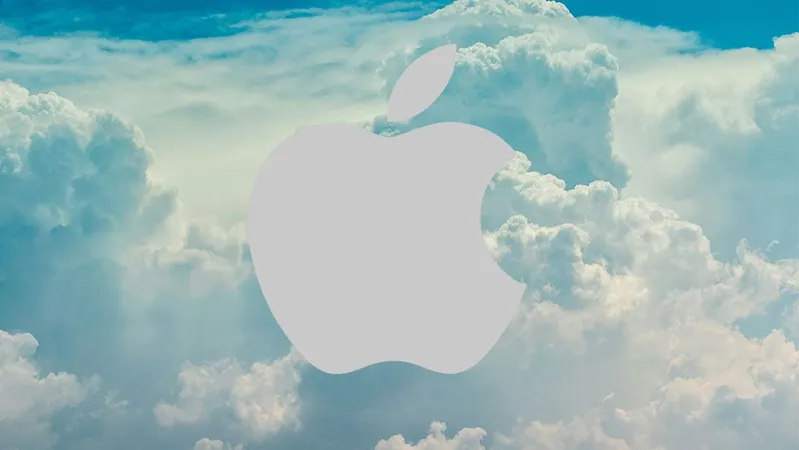
Apple Sparks Outrage Among Users with Sneaky AI Photo Analysis Feature!
2025-01-05
Author: Rajesh
Introduction
Apple has always prided itself on innovation and user privacy, but the tech giant is facing a wave of backlash after quietly rolling out its Enhanced Visual Search feature with the updates to iOS 18.1 and macOS 15.1 in October. While competitors have long integrated AI technologies, Apple’s late arrival to the AI game is overshadowed by controversies that have left many users feeling betrayed.
The Controversial Feature Rollout
Upon updating, users discovered that Apple automatically opted them into Enhanced Visual Search, a feature designed to identify landmarks in their photos by sending images from the Photos app to Apple servers. This functionality, claimed to be end-to-end encrypted, supposedly protects the user's data. Apple insists that neither it nor its partner Cloudflare can access the content of these images or any identifying information. The process involves local machine-learning analyses which generate a vector embedding of regions of interest in the images, followed by scrambling the data before transmitting it to the servers for landmark identification.
User Backlash and Privacy Concerns
However, this well-intentioned feature has spiraled into controversy due to its lack of a clear opt-in process. Users were not informed about the feature at the initial rollout, leading many to feel that their privacy had been compromised. Even if they choose to opt out after the fact, data from previously stored images may have already been transmitted without their consent.
Voices of Dissent
Notable voices in the tech community have expressed their dissatisfaction. Software developer Michael Tsai articulated his frustrations on his blog, stating, "Apple is trying to implement this in a privacy-preserving way, but it ultimately fails to uphold its own standards. The lack of an opt-in feature means users can't protect their data effectively." Similarly, Jeff Johnson, another developer, emphasized the right of individual users to control their data, saying, "The choice of privacy shouldn’t be dictated by Apple; it needs to be in the hands of the users."
Expert Opinions
Experts are also chiming in. Matthew Green, an associate professor at Johns Hopkins Information Security Institute, criticized the rollout strategy: "The way this was introduced suggests that Apple may not be transparent about its intentions for protecting user privacy." This contrasts sharply with Apple's previous marketing campaigns that emphasized user privacy, such as their bold slogan, “What happens on your iPhone stays on your iPhone.” Users feel misled, as the default settings seem to push for the adoption of new features without proper user consent or awareness.
Response from Apple
In response to the outcry, Apple has provided guidance for users who wish to disable Enhanced Visual Search: simply navigate to Settings > Apps > Photos on iOS/iPadOS or go to Settings > General on a Mac and uncheck the relevant box.
Future Implications
As this situation develops, it raises important questions about user consent and privacy in an increasingly AI-driven world. With Apple at the forefront of technology, many are left wondering how their leveraged innovations will respect consumer rights moving forward. Will the tech titan return to its privacy-first ethos, or will these missteps lead to deeper discontent among its loyal user base? Only time will tell!
 Brasil (PT)
Brasil (PT)
 Canada (EN)
Canada (EN)
 Chile (ES)
Chile (ES)
 Česko (CS)
Česko (CS)
 대한민국 (KO)
대한민국 (KO)
 España (ES)
España (ES)
 France (FR)
France (FR)
 Hong Kong (EN)
Hong Kong (EN)
 Italia (IT)
Italia (IT)
 日本 (JA)
日本 (JA)
 Magyarország (HU)
Magyarország (HU)
 Norge (NO)
Norge (NO)
 Polska (PL)
Polska (PL)
 Schweiz (DE)
Schweiz (DE)
 Singapore (EN)
Singapore (EN)
 Sverige (SV)
Sverige (SV)
 Suomi (FI)
Suomi (FI)
 Türkiye (TR)
Türkiye (TR)
 الإمارات العربية المتحدة (AR)
الإمارات العربية المتحدة (AR)